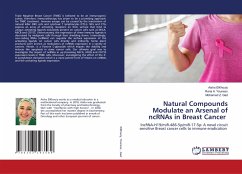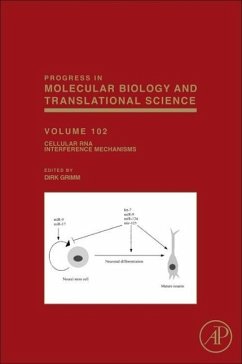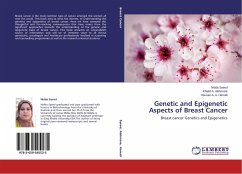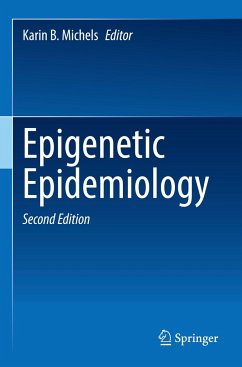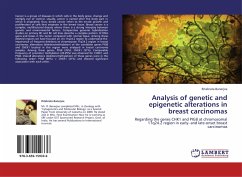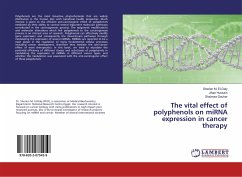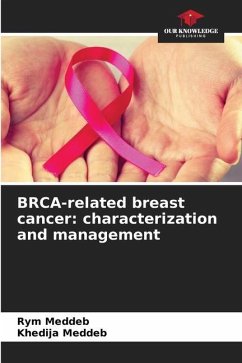
Epigenetic Mechanisms in Breast Cancer Therapy and Resistance

PAYBACK Punkte
65 °P sammeln!
Epigenetic mechanisms are essential for normal mammalian development and maintenance of gene expression patterns. Disruption of epigenetic processes can lead to altered transcriptional regulation, gene levels, and malignant cellular transformation. Global alterations of the epigenetic landscape are a hallmark of tumorigenesis and metastasis. Conventionally, cancer was thought to be a genetic disease, but recent advancement in the field identified an abundance of epigenetic abnormalities along with genetic alterations. The extensive reprogramming of epigenetic machinery in cancer includes DNA m...
Epigenetic mechanisms are essential for normal mammalian development and maintenance of gene expression patterns. Disruption of epigenetic processes can lead to altered transcriptional regulation, gene levels, and malignant cellular transformation. Global alterations of the epigenetic landscape are a hallmark of tumorigenesis and metastasis. Conventionally, cancer was thought to be a genetic disease, but recent advancement in the field identified an abundance of epigenetic abnormalities along with genetic alterations. The extensive reprogramming of epigenetic machinery in cancer includes DNA methylation, histone modifications, nucleosome positioning and non-coding RNAs, specifically microRNA expression. Additionally, the reversible nature of epigenetic aberrations has led to the emergence of the promising field of epigenetic therapy, and recent FDA approval of epigenetic drugs for cancer treatment.
This book focuses on the epigenetic mechanisms in breast cancertherapyand resistance. It is organized into three sections, including epigenetic mechanisms in breast cancer, targeting epigenetic mechanisms for new therapies, and new and emerging methodologies to study epigenetic alterations in breast cancer. Chapters highlight various epigenetic regulations that prevent breast cancer growth and progression, as well as epigenetic alterations that contribute to breast cancer progression. This text is a useful methodology book for researchers and students interested in epigenetics in breast cancer and the fundamentals of cancer biology.
This book focuses on the epigenetic mechanisms in breast cancertherapyand resistance. It is organized into three sections, including epigenetic mechanisms in breast cancer, targeting epigenetic mechanisms for new therapies, and new and emerging methodologies to study epigenetic alterations in breast cancer. Chapters highlight various epigenetic regulations that prevent breast cancer growth and progression, as well as epigenetic alterations that contribute to breast cancer progression. This text is a useful methodology book for researchers and students interested in epigenetics in breast cancer and the fundamentals of cancer biology.






